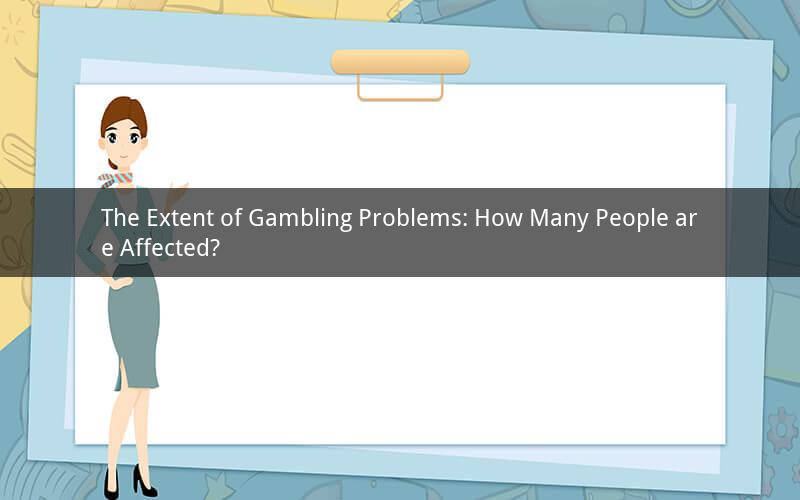
Introduction:
Gambling has been a prevalent activity across the globe, captivating millions of individuals with its allure. However, it is a double-edged sword, as it can lead to addiction and gambling problems. In this article, we will explore the extent of gambling problems and shed light on how many people are affected by this issue.
1. Understanding Gambling Problems:
Gambling problems encompass a range of issues, including gambling addiction, problem gambling, and compulsive gambling. These problems can have severe consequences on an individual's mental, emotional, and financial well-being. It is crucial to recognize the signs and symptoms of gambling problems to address and prevent further damage.
2. The Prevalence of Gambling Problems:
The exact number of people affected by gambling problems may vary across different regions and populations. However, several studies have provided insights into the extent of this issue. According to the National Council on Problem Gambling (NCPG), approximately 2-3% of the adult population in the United States is considered to have a gambling problem. This translates to millions of individuals who are struggling with the negative consequences of gambling.
3. Factors Contributing to Gambling Problems:
Several factors contribute to the development of gambling problems. These include:
a. Genetic predisposition: Research suggests that genetics play a role in the susceptibility to gambling problems. Individuals with a family history of addiction may be more prone to developing gambling-related issues.
b. Psychological factors: Mental health conditions such as depression, anxiety, and substance abuse disorders can increase the risk of developing gambling problems.
c. Social and environmental factors: Peer pressure, exposure to gambling through media, and the availability of gambling opportunities can also contribute to the development of gambling problems.
4. The Impact of Gambling Problems:
Gambling problems can have a profound impact on individuals and their families. Some of the consequences include:
a. Financial difficulties: Problem gamblers often experience significant financial losses, leading to debt, bankruptcy, and financial instability.
b. Emotional and psychological distress: Gambling problems can lead to feelings of guilt, shame, anxiety, and depression. It can also strain relationships with family and friends.
c. Legal and social consequences: Problem gamblers may face legal issues, including fraud, theft, and gambling-related crimes. It can also lead to social isolation and a breakdown of personal relationships.
5. Addressing Gambling Problems:
Recognizing the extent of gambling problems is the first step towards addressing and preventing further damage. Here are some strategies to tackle gambling problems:
a. Seek professional help: Individuals struggling with gambling problems should seek support from mental health professionals or specialized gambling addiction treatment centers.
b. Support groups: Joining support groups such as Gamblers Anonymous can provide individuals with a sense of community and shared experiences.
c. Financial management: Developing healthy financial habits, such as budgeting and setting limits, can help individuals regain control over their finances.
d. Education and awareness: Increasing awareness about the risks and consequences of gambling can help individuals make informed decisions and avoid falling into gambling problems.
FAQs:
1. How many people in the world have gambling problems?
Answer: The exact number of people affected by gambling problems worldwide is difficult to determine, as it varies across countries and regions. However, it is estimated that millions of individuals globally are struggling with gambling-related issues.
2. Can gambling problems affect children and adolescents?
Answer: Yes, gambling problems can affect children and adolescents. Research indicates that individuals who start gambling at a young age are more likely to develop gambling-related issues later in life.
3. Are there any effective treatments for gambling problems?
Answer: Yes, there are various effective treatments for gambling problems. These include cognitive-behavioral therapy, medication, support groups, and residential treatment programs.
4. Can gambling problems be prevented?
Answer: While it is not possible to completely prevent gambling problems, individuals can take steps to reduce their risk. This includes setting limits on gambling activities, seeking support from loved ones, and being aware of the potential risks.
5. How can I help someone with gambling problems?
Answer: If you know someone with gambling problems, you can offer support by being empathetic, encouraging them to seek professional help, and providing a non-judgmental environment. It is crucial to approach the situation with understanding and patience.